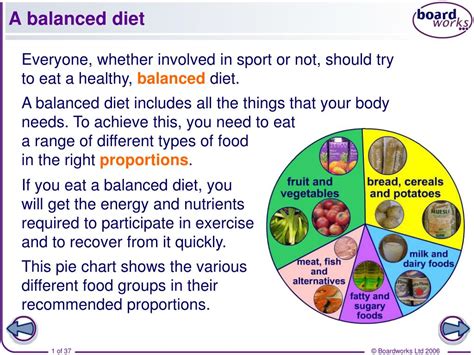Achieving a trifecta of sustained energy, razor-sharp focus, and consistent muscle growth isn’t about restrictive diets or magic pills; it’s about providing your body with the right fuel, consistently. Your daily nutritional intake acts as the blueprint for your physical and cognitive performance. Understanding what constitutes an optimal diet involves balancing macronutrients, ensuring micronutrient sufficiency, and staying adequately hydrated.

The Macronutrient Foundation: Energy & Building Blocks
Macronutrients—carbohydrates, proteins, and fats—are the cornerstones of your diet, each playing distinct yet interconnected roles in supporting your goals.
Carbohydrates: The Primary Energy Source
Often demonized, carbohydrates are your body’s preferred and most efficient source of energy. For sustained energy and focus, prioritize complex carbohydrates. These are digested slowly, providing a steady release of glucose into the bloodstream, preventing energy crashes and maintaining cognitive function. Think whole grains (oats, brown rice, quinoa), starchy vegetables (sweet potatoes, squash), and legumes (beans, lentils). Simple carbohydrates, found in fruits and some dairy, offer quicker energy boosts and essential vitamins, but should be consumed in moderation and strategically.

Protein: Muscle Repair and Satiety
Protein is indispensable for muscle growth and repair, making it a critical component for anyone looking to build or maintain lean mass. Beyond its structural role, protein contributes to satiety, helping manage hunger and preventing overeating, which can indirectly aid in maintaining focus by avoiding the distractions of hunger pangs. Sources include lean meats, poultry, fish, eggs, dairy, and plant-based options like tofu, tempeh, and various protein powders. Distributing protein intake evenly throughout the day can optimize muscle protein synthesis.
Healthy Fats: Sustained Energy & Brain Health
Fats are not just a backup energy source; they are vital for hormone production, nutrient absorption, and long-term satiety. Essential fatty acids, particularly omega-3s, are crucial for brain health, impacting focus, mood, and cognitive function. Incorporate healthy fats from sources like avocados, nuts, seeds, olive oil, and fatty fish (salmon, mackerel). These fats provide a dense, sustained energy release, complementing carbohydrates and preventing energy dips.

The Unsung Heroes: Micronutrients & Hydration
While macronutrients provide the bulk of your calories, micronutrients (vitamins and minerals) and water are the critical co-factors that enable your body to utilize those macros effectively, drive metabolic processes, and maintain overall health.
Vitamins and Minerals: The Performance Catalysts
Vitamins and minerals are involved in thousands of biochemical reactions, from energy production (B vitamins, magnesium, iron) to immune function (Vitamin C, D, zinc) and nervous system health (B vitamins, magnesium). A deficiency in even one key micronutrient can impair energy levels, focus, and recovery. Eating a wide variety of colorful fruits and vegetables ensures a broad spectrum of these essential compounds. Leafy greens, berries, and diverse vegetables should be a staple.
Hydration: The Master Regulator
Water is often overlooked but is arguably the most critical component for sustained energy and focus. Dehydration, even mild, can significantly impair cognitive function, leading to fatigue, reduced concentration, and headaches. It also impacts physical performance and nutrient transport, hindering muscle growth and recovery. Aim for consistent water intake throughout the day, adjusting for activity levels and climate.

Strategic Eating: Timing and Quality
Beyond what you eat, when and how you eat also play a significant role in optimizing your daily fuel.
Meal Timing and Frequency
While the old adage of six small meals a day isn’t a strict rule for everyone, consistently fueling your body prevents extreme hunger and energy fluctuations. Spreading your macronutrient intake across 3-4 balanced meals and 1-2 snacks can help maintain stable blood sugar, support continuous muscle protein synthesis, and keep your focus sharp throughout the day.
Prioritizing Whole, Unprocessed Foods
The quality of your food sources profoundly impacts your body’s ability to thrive. Whole, unprocessed foods are nutrient-dense, fiber-rich, and free from artificial additives, excessive sugars, and unhealthy fats often found in processed alternatives. Choosing whole foods maximizes nutrient intake while minimizing inflammatory responses and metabolic stress, promoting better long-term energy, health, and muscle development.

Listen to Your Body: Individualization is Key
While general guidelines exist, the optimal daily fuel is ultimately personal. Factors like activity level, body composition, metabolism, dietary preferences, and any underlying health conditions all influence individual nutritional needs. Experiment with different food combinations and timing to discover what makes you feel your best, perform optimally, and achieve your specific goals for energy, focus, and muscle growth. Consulting with a registered dietitian or nutritionist can provide personalized guidance tailored to your unique requirements.
In essence, the optimal daily fuel is a balanced, diverse, and consistent intake of nutrient-dense whole foods. By prioritizing complex carbohydrates, lean proteins, healthy fats, an abundance of fruits and vegetables, and adequate hydration, you empower your body and mind to operate at their peak, supporting sustained energy, unwavering focus, and efficient muscle growth.




